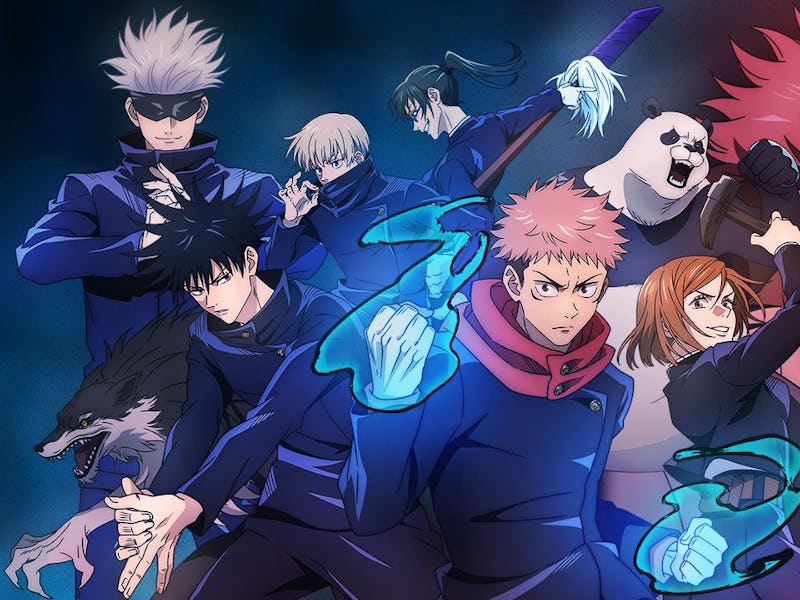Stop Making Great Anime Into Terrible Video Games
Unrealized potential.

If you haven’t heard of it already, Jujutsu Kaisen is a fantastic anime that subverts the typical tropes of the Battle Shonen genre. However, Jujutsu Kaisen: Cursed Clash, released at the start of February, is not a good video game. It’s yet another arena fighter that embodies everything wrong with the ubiquitous anime game: shallow gameplay, lack of content, and a derivative story that retells the show. It’s a story all too common, as nearly every anime adaption that gets announced falls into the same trap. It begs a simple question, why can’t we get good anime video games? And its answer might come down to the changing tides of the game industry itself.
Jujutsu Kaisen: Cursed Clash is an extreme example of an adaption going wrong, as evidenced by its dismal 46 on Metacritic. It’s clear that this was a lackluster effort quickly thrown together to try and cash in on the popularity of the series. It’s disappointing because Jujutsu Kaisen, like many anime series, does feel like it’s perfect for a more interactive experience. Good and evil sorcerers vying for power that have access to unique powers through “curses” sounds like the perfect setup for a game.
Almost every popular Shonen anime out there has an arena fighter game, where characters duke it out alone or in teams.
The real problem is that anime adaptations refuse to grow outside the bounds of specific genres, 3D arena fighters, gacha (pay for character draws) mobile games, or by-the-numbers action games. By and large most of these games also simply recreate the story of the anime, instead of trying to craft something new or different.
Just looking at the last few years, you’ll see a torrent of games that fall into these categories: Demon Slayer: The Hinokami Chronicles, Naruto x Boruto Ultimate Ninja Storm Connections, Jojo’s Bizarre Adventure: All-Star Battle R, My Hero One’s Justice, One Punch Man: A Hero Nobody Knows, Sword Art Online Alicazation Lycoris, and many more.
The other thing that becomes clear when looking at all these titles is that they have a limited scope and budget, and that’s indicative of how the video game industry itself has changed. There’s been a lot of talk in recent years about how expensive it’s become to make video games, including the UK’s Competition and Markets Authority saying AAA budgets could balloon upwards of $300 million in some cases. We’ve also seen a homogenization of many AAA games over the last decade, with more titles leaning toward open world elements or live service approaches, in a bid to attract more players. In a way, it’s the same thing we’re seeing with anime games — new ideas conforming to what’s worked before.
It’s become riskier than ever to make video games, and publishers like Bandai Namco simply won’t invest large sums of money into an anime adaption that might fail. That’s why it’s so much easier to stick to the norm and do what’s worked in the past. But the problem is that leads to a lack of innovation and that in turn has made the world of anime-adapted video games grow stagnant.
That’s a real shame because there are some truly fantastic anime and manga out there that could benefit from using dynamic ideas from other video game genres. Imagine a My Hero Academia game that embraces Persona’s school and social elements, a Gundam game that takes cues from the cryptic storytelling and customization of Armored Core VI, or even a space-faring open world take on Cowboy Bebop. These are ideas we’ll never see in the industry’s current climate because the risk is too great. Those arena fighters and action games can be churned out ad nauseam and, by name alone, guarantee at least some kind of return.
Of course, it’s also important to point out that Shonen-related video games are published almost exclusively by Bandai Namco. That means so many of these adaptions are coming from a single place, which only compounds the issue. There are plenty of anime and manga outside the purview of Shonen, but again brand recognition is vital when you’re taking a risk with game development, and names like Demon Slayer, Naruto, and One Piece are known. These series already have massive built-in fan bases, and could potentially attract newcomers who know the name but not the series.
Dragon Ball is unarguably the most well-known anime ever created, and that’s allowed the series to experiment in ways others haven’t.
There have been exceptions over the years that occasionally show a hopeful future for anime adaptions. Dragon Ball games can afford to take chances on games like Kakarot or FighterZ, because of the sheer overwhelming popularity of the franchise. Even the poorly-received Dragon Ball: The Breakers feels like a breath of fresh air, simply because it dared to try something different with its asymmetrical multiplayer.
One Piece similarly has split off a few times, most recently with the Dragon Quest-inspired One Piece Odyssey, though the game still was too obsessed with retelling its source material. Then you have smaller titles, like the upcoming Spy x Anya: Operation Memories, a slice-of-life game that really leans into the tone and style of its anime counterpart. The problem is that for every one of these games, we get ten generic arena fighters, and that pace simply isn’t sustainable. The same idea can only work for so long before people get fed up. There’s so much untapped potential in the fusion of anime and video games, and we can only hope that someday a wider selection of diverse studios and talent can seize on that opportunity.
This article was originally published on